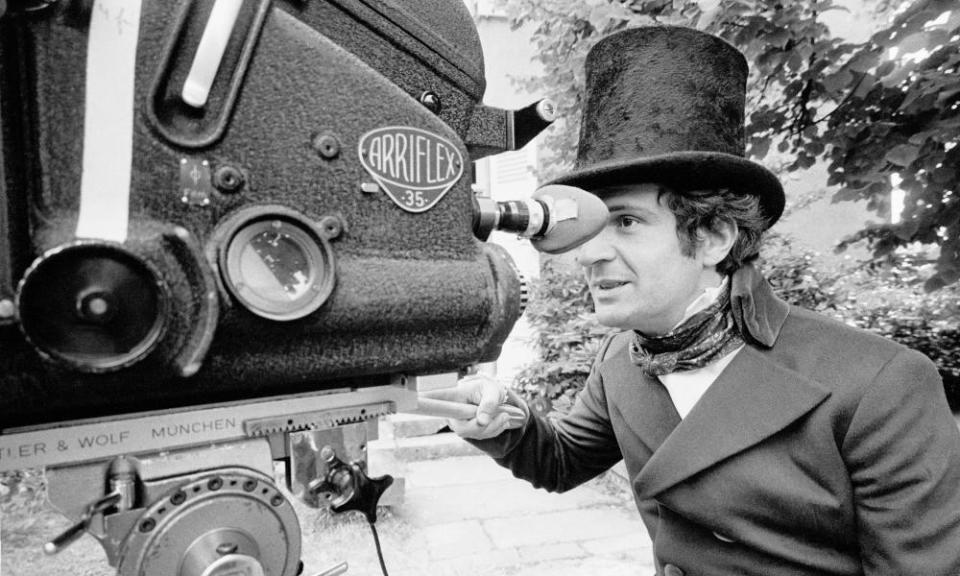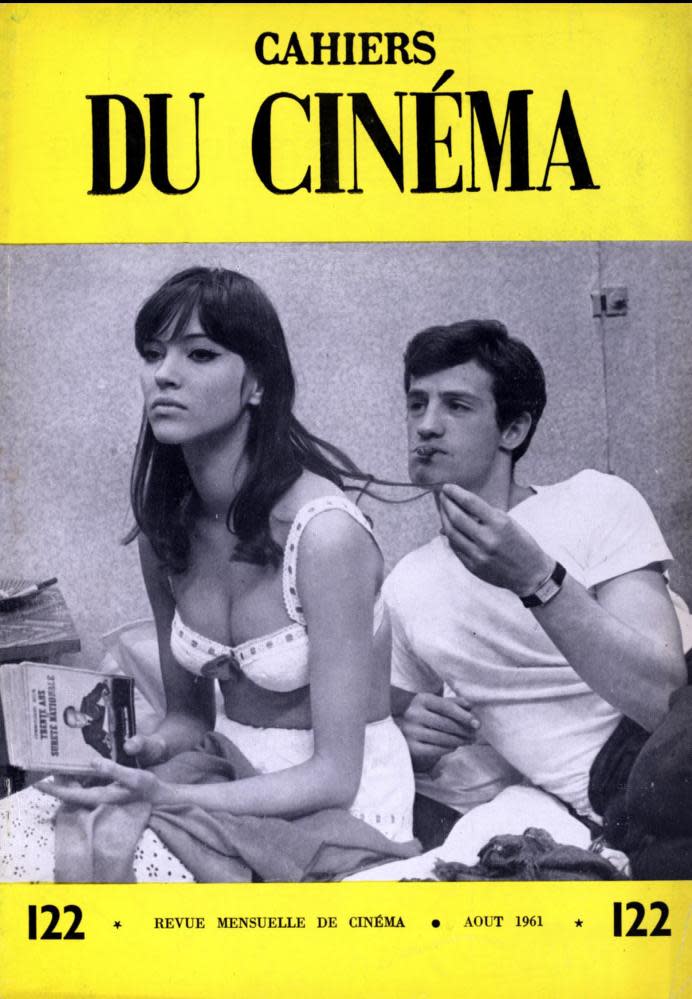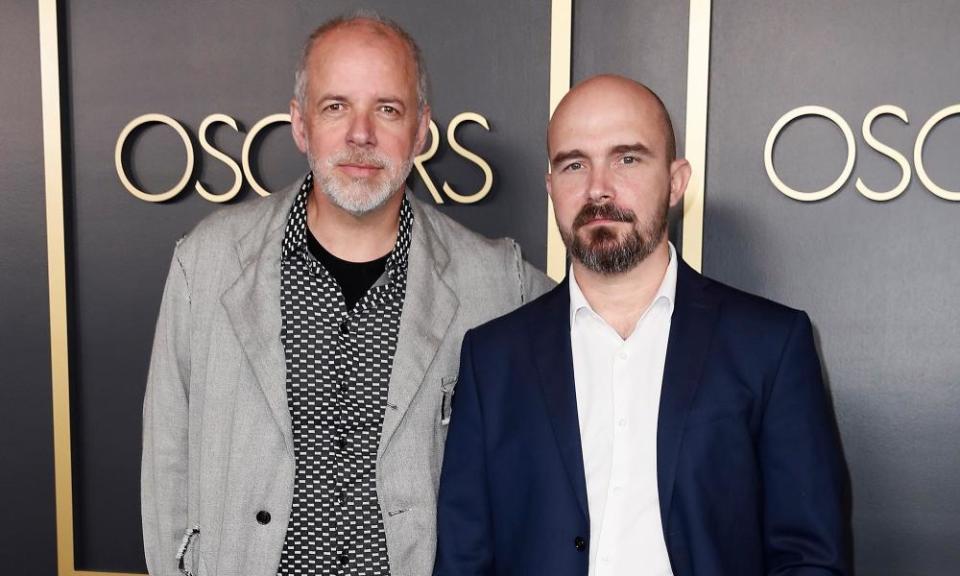Giving millionaires the boot: why Cahiers du Cinéma editors quit en masse

The mass resignation of the staff of Cahiers du Cinéma, the film journal that launched the French New Wave, has reignited debate in France about the possibility of critical independence in a society whose major stakeholders frequently operate in several spheres.
On Thursday, the 15 staff writers and editors announced their resignation, saying they believed its new owners posed a threat to the magazine’s cherished independence.
“The new shareholders include eight producers who create a conflict of interest for a critical publication,” the journalists said. “Whatever articles are published, there would be a suspicion of interference.”
Last month the magazine was sold to a group of 20 shareholders, almost a year after being first put on the market by owner Richard Schlagman. The new owners are led by Grégoire Chertok, managing partner for investment bank Rothschild & Co and a Paris councillor.

Nicknamed “the cinephile banker”, Chertok leads a collective that includes Xavier Niel, the founder of internet company Free and co-owner of the Le Monde group, which operates the newspaper of the same name; Marc Simoncini, founder of online dating website Meetic; Hugo Rubini, head of the cinema insurance company of the same name covers 40% of French productions; and Alain Weill, founder of French news channel BFM TV, chairman and CEO of the telecommunications company SFR Group, and owner of the newspaper L’Express.
The group also includes eight film producers, among them Pascal Caucheteux, founder of Why Not Productions; Toufik Ayadi and Christophe Barral (behind the acclaimed social unrest drama Les Misérables); Frédéric Jouve and Marie Lecoq of production company Les Films Velvet; Réginald de Guillebon; and Marc du Pontavice (Jérémy Clapin’s I Lost My Body).
The presence of these men on the board, say the staff, means that “regardless of the articles published about those producers’ films, they would be suspected of complacency”.
The journalists were also angered by what they perceived to be attacks on the magazine’s credibility. Speaking to French outlets such as Télérama (which belongs to the Le Monde group co-owned by Xavier Niel), Le Film Francais and Livres Hebdo in February, new director Éric Lenoir elaborated on the changes he hoped to implement at Cahiers.
These included the goal of making the magazine “a little more chic, like it used to be for decades, during the yellow Cahiers for example” (a reference to the yellow covers of Cahiers’ early days) and “convivial […] critical without being insulting”.
In their statement, the writers and editors rebuffed the notion that Cahiers was ever chic or convivial, before declaring: “Cahiers has always been a politically engaged outlet, taking clear positions.” They point out that one of the magazine’s most famous articles, François Truffaut’s “A certain tendency in French cinema” from 1954 was a fierce critique of bourgeois French cinema.

The release also denounces the appointment of Julie Lethiphu, current chief executive of the SRF (Society of Film Directors), as chief executive, which they say compounds concerns of an “influence from the French film industry” already suggested in Lenoir’s statements. Talking to Le Film Français, Lenoir explained that the collective would think about creating “new partnerships, new collaborations with the Cannes film festival, with institutions, with film schools”.
Truffaut, one of the original and most celebrated Cahiers critics, was banned from Cannes in 1958 due to his unfavourable commentary on its programming the previous year, and Stéphane Delorme, editor-in-chief of the magazine since 2009, has also regularly criticised the festival. In 2017, he wrote that the official competition programme “encouraged a kind of hateful, hollow and pretentious cinema that is sadly becoming the cinema of our times”.
In 2015, he criticised what he suspected was a favouring by the festival of headline-grabbing stars over good films. But Delorme also praised the selection of the 2016 edition. The editorial staff said that “to turn Cahiers into a glitzy showcase or into a promotional platform for French auteur cinema would be to denature the magazine”
Many of the new owners of Cahiers are also close to the French government and supporters of President Emmanuel Macron: Chertok works in the current government, and Simoncini publicly supported Macron during the last elections. The editorial staff brought attention to what the magazine’s editorials from the last few months already demonstrated: the magazine “has stood against the media treatment of the ‘yellow vests’ protests and the proposed university and cultural reforms, and questioned the legitimacy of France’s minister of culture when he was appointed”.
In September 2015, Cahiers put out its most ostensibly politically engaged issue under Delorme’s direction, its cover featuring a still from French film One Wild Moment, with the title “the political emptiness of French cinema”. Delorme’s editorial explicitly singled out Jacques Audiard’s Dheepan – a surprise Palme d’Or winner at Cannes – as an example of the kind of “BFM-isation of people’s brains”, in which social unrest isn’t a problem to be solved politically but only a setting for an action film. BFM TV was founded by Weill, and Dheepan was produced by Caucheteux, both of whom are new owners of the magazine.

